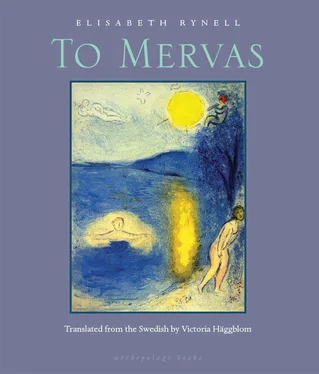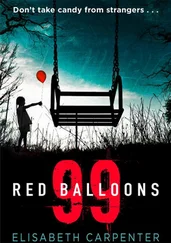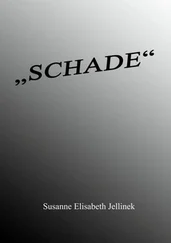“But I told you that you weren’t all alone.”
“Yes. But perhaps that’s not how it is.”
“If it hadn’t been true, I’d never have contacted you.”
“I’m sorry. I don’t want to hurt you.”
“Now, Mart, now we’re going to set the table and make everything pleasant. Let’s try to be here for a while, here! Everything isn’t in the past, even though much is. Can you agree with me about that?”
She looked at him. Oh, this was Kosti; this was how he was, now she remembered.
“Let me smell you,” she whispered. “I want to feel your scent.”
He put his arms around her and she pressed her head against his chest and neck and inhaled that nice, grassy smell of his, mixed with whiffs of his pipe tobacco and mosquito repellant. Her eyes burned and then the tears came like a river. She didn’t sob, didn’t make any crying noises, the tears just fell.
“I’m not sad,” she whispered. “I don’t want you to think that I’m sad.”
“No, I know that,” he said. “I’ve cried too.”
“I know,” she said. “I saw you crying.”
“Yes, you saw it when you were asleep, didn’t you?”
He let his lips touch her eyes, first one, and then the other. She saw that he smiled a little.
Marta’s voice, whispering out of the half darkness.
“Kosti, Kosti, are you awake? Can I tell you one more thing? About afterward. I want you to understand what I mean by afterward. It’s what comes afterward, after the tears and the screams, after the great infatuation and after the crazy dreams that haunt you. It’s when you make a cup of tea and you know it’s over and you sit at the kitchen table dipping the tea bag in and out of your cup, and the apartment is completely silent, there’s only the light of your lamp and silence and the steam from the tea on your face. It’s afterward, you see, after all your losing battles — and the terrible shame that’s left — the shame of being who you are. It’s after all that, after the tears, when you feel your body soften and give in and a stillness comes over you. You’re sort of a small child and your mother has finally heard you, heard you crying and fussing and screaming and now she has lifted you up and is holding you tightly to her. Yes, you know what I mean, it’s afterward and a sense of calm, a heavy, warm calm spreads through you — ”
Kosti turns in the bunk above her. “But what you’re talking about is death — ”
“No, it’s not about death at all. I’m talking about consolation. About atonement. The consolation afterward.”
“I think I understand, Mart. But I have to sleep now. I’m already almost asleep. But can I also say one more thing, before I fall asleep? It’s strange that it doesn’t feel strange when we touch each other.”
“Yes, it is strange. Good night.”
“Good night, my dear, my own dear — ”
After a moment’s silence, Kosti’s voice comes from the upper bunk.
“Mart? Are you sleeping? Have you fallen asleep?”
“No, I’m awake. Barely awake.”
“Can I tell you something else? One more thing. I want you to understand what I said, what I wrote. It’s important, you see. It’s important that you understand. You weren’t alone, Mart. I was part of it, part of what happened. Even though you feel all alone, even if you felt alone then, I want you at least to try to accept what I’m saying because it was a big thing for me when I understood that. It was incredible. It shook me; my entire life was turned upside down by it. But I knew that I was responsible for what happened, knew that my life also was determined by it, that my fate belonged with yours. I’m not saying that I’ve suffered like you or that I’ve experienced the torment you have. I don’t want to take anything away from you. I only want you to understand that you weren’t entirely alone, not entirely — Can you understand that, Mart? I’ve got to get an answer from you because sometimes I’ve thought that I was simply crazy, just out of my mind.”
“Kosti? Kosti. It’s not so easy. It feels like I’m about to break; I understand what you’re saying, I’ll try to absorb it. But I have to do it little by little, I can’t take it all in at once. Your solitude becomes enmeshed with you. It sticks to you, covers you like skin. But I’m happy. You hear me? I’m happy that you’re here.”
“I’m happy too. Let’s say good night now. Let’s sleep.”
“Good night. Sleep well.”
I can see through the darkness now. What was blurry is clear. Now I see so clearly in the light of the extinguished lamps. I see her, the woman who was my mother. Now she will be sacrificed. We children are sitting on the floor, completely silent. All we have to do is watch. It’s Daddy, he’s on top of her pushing, and he’s pushing life and death into her womb. It’s as if the lights had not been extinguished but lit. A light beyond words falls on them. Someone has to be sacrificed. Someone always has to be sacrificed in order for the others to see. And darkness settles. That’s also how it is. Darkness settles.
In the morning, Marta woke up before Kosti. She was afraid. Without making a sound, she took her clothes and slipped out of the cabin. She dressed outside and drank some water from the bucket. Then, with fear somersaulting inside her, she started walking. She didn’t know where she was going; she walked where her legs carried her.
Down on the slope, the mining tower looked like a big animal, a solid, immobile body drinking its own shadow in the early morning light. She walked in under the structure, between the four heavy legs and under the concrete belly, which had cracked in an intricate pattern of tangled tendrils. She curled up there, on the ground, and tried to breathe. It was as if someone or something had chased her out of her sleep and away from the cabin, along the path and down the hill. She was dizzy. She wanted to hide, but how was she to know what a good hiding place would be when she didn’t know what was pursuing her? Were the woods a good hiding place, or the branches of a tall tree, or the narrow beach? Was the mining tower a good place?
She grabbed tiny concrete shards and sharp gravel from the ground and squeezed her fists tightly around them. It hurt; it was meant to hurt. She pressed the sharp shards against her face. They cut into her skin. She moved her hand around and around against her cheek. Then she began crying. The tears stung on her face and she pushed her forehead as hard as she could against the rough ground. Her whimpering turned into small cries. She was afraid of Kosti. She knew that now.
She struggled to her feet and tasted blood. Together with the tears and dirt, blood ran down her face. Shards and small pieces of gravel stuck in her skin, as if she were a stone wall. The mining tower wasn’t a good hiding place, Kosti could easily find her there. She had to keep walking, had to move on until there were no paths or roads to follow. Fear fluttered inside her like a flame in a strong draft. She didn’t understand why, but she kept thinking that Kosti was an evil force, that he was dangerous to her.
She walked into the woods and the mosquitoes descended on her in huge, hungry swarms. For a while, she tried to ignore them, but it didn’t work. Another, older fear seized her; she was squeezed between the two kinds of fear, paralyzed. Now she was the prey. She sank onto the mossy ground, hiding her face in her folded arms. The mosquitoes bit her where they could, her neck and scalp, her hands. They bit through her clothes; they were everywhere. She lay there trying to endure it, but suddenly she couldn’t take it anymore. Her scream was so loud it astounded her. Then her crying grew quiet and miserable; she was a lump on the ground, her back was shaking.
Читать дальше












